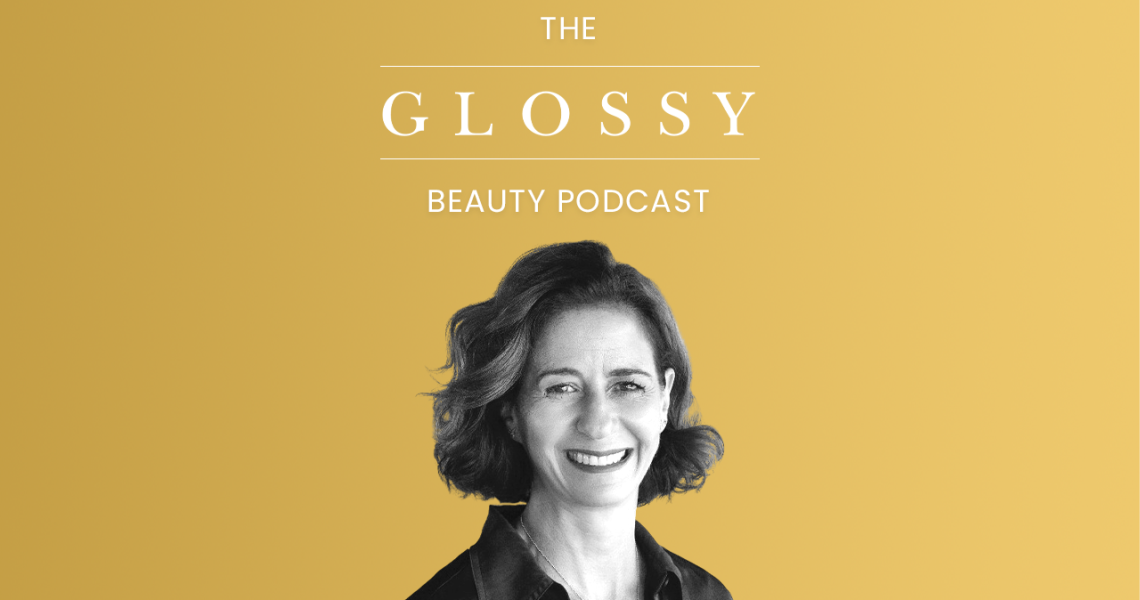This is an episode of the Glossy Beauty Podcast, which features candid conversations about how today’s trends are shaping the future of the beauty and wellness industries. More from the series →
Subscribe: Apple Podcasts | Stitcher | Google | Spotify
Like many beauty executives, Andrea Alvares, Natura chief brand, innovation, international and sustainability officer, saw her business completely change with the onset of Covid-19. Meetings on Zoom became commonplace and a digital-centric model became priority No. 1. But while the U.S. is close to normalcy, the bulk of Natura’s business is in Latin America where the pandemic ravages on.
“We’re still in a weird space. In Latin America, you’ve got some countries like Chile that are a bit further down, in terms of the vaccination programs for everyone. The majority of the Latin American countries are still in the initial stages of vaccination,” said Alvares on the most recent episode of the Glossy Beauty Podcast. “It was very difficult also to do complete lockdowns because the whole socio-economic landscape isn’t a favorable one, in terms of ensuring that you keep people really in isolation. There are some situations where it’s just not possible. We’ve seen a reduction in overall death rate — it’s dropped by half — but it’s still very high, and we can’t get used to it.”
Still, the Natura brand saw net revenue grow by 12.6% in Brazil and 60.4% in Hispanic Latin America for the most recent quarter, announced in May.
Alvares largely credits the wins to Natura’s holistic approach to beauty and the brand’s social selling model. Of the latter, she said. “It has been absolutely critical to the fact that we’ve been so resilient and that we actually fared well in 2020. We were a social network before social networks existed; they’ve been dialed up with digital tools [now] that actually amplify the reach of that business model. We actually helped many of our consultants up their capabilities in digital — so, their skills using digital tools and actually be[ing] able to sell in this environment. We reached 1.3 million virtual consultants in Latin America over the past year, which is incredible — that’s more than double the size we were seeing pre-pandemic.”
Below are additional highlights from the conversation, which have been lightly edited for clarity.
Ad position: web_incontent_pos1
Adapting with the consumer
“To our benefit, we are very much spread across different categories. We do have makeup, we have skin care, we’ve got body care, we’ve got hair care, we’ve got fragrances. In [a] way, that’s also protection, because we have a portfolio of product solutions. We could navigate together with consumers the different preferences that they were having and adapt our lines, as well. We also produced hand sanitizers for a while, and we still are — we’ve incorporated them into some of our lineups. We’ve changed the [product] mix, so even in makeup, we saw a significant increase in eye care, in eye makeup. Lashes and even foundation use increased, which is very different from what we saw in the past. We adapted and learned, and quickly responded to the different consumer behaviors we were seeing.”
Empowering representatives
“[They’re] getting younger, and even the ones that are not [younger] have very quickly adapted… In the face of the [pandemic] need, they learned, and I think we were very skillful at helping them navigate that learning process. We put many tools at their disposal … we simplified the processes for them as a way to reduce that challenge of adoption, and I think that helped significantly for them. [To solve for] some of the other issues that they faced — especially in the beginning of the pandemic, and again in the second wave — we extended payment terms and we gave them credit. We also supported them in a time of need, where things were very ambiguous. People didn’t know exactly what was going to happen. We stood there for them, and we saw their connection to the brand increase tremendously.”
Responding to conscious consumerism
“There isn’t a silver bullet, [but] there’s a series of actions that we need to take. [That’s] all the way from educating consumers to making them aware to ask questions [like]: ‘Where does my product come from?’ ‘Who produces this?’ ‘What ingredients come inside?’ All of that is important, as is them understanding that they’re a part of the equation and, therefore, they need to adopt different behaviors. [That could be by] buying more refills or giving back their empty bottles or packages, [or] doing a big part of the work. We are also actively reducing the plastic or the materiality of our products. We are also significantly increasing the post-recycled consumption — the use of different materials, be it glass, be it plastic, be it paper — and weaving it in. In the case of Natura, we created a business model which, when you buy a product, you are automatically contributing to a business model that keeps the [Amazon rain] forest standing.”




